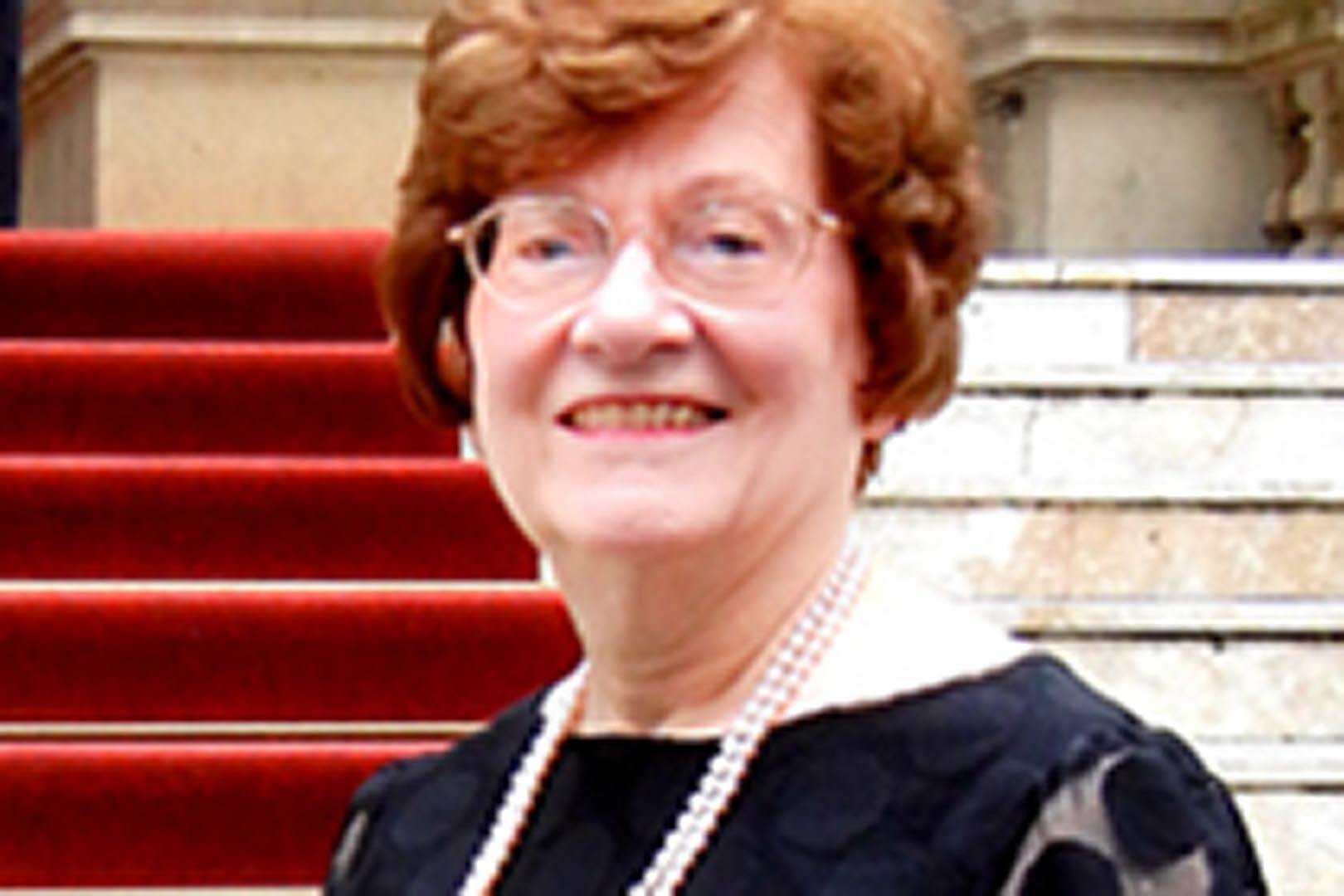Anything But “By The Book”
January 24, 2017

Marilyn Courtot ’65 gives the gift of language and literature.
By Jackie Zakrewsky
As an English major with a passion for reading, Marilyn Courtot ’65 had plenty of company on campus. As an alumna with a degree in English and an aptitude for math, she was a one-of-a-kind trailblazer. In a nutshell, she became an ace computer programmer, made history as the first woman to serve as assistant secretary of the U.S. Senate, and launched two highly successful businesses.
Now she’s looking to share some of her success by creating the Courtot Living-Learning Scholarship in the Arts and Humanities via a bequest to provide need-based scholarships for students participating in the Language House or the Jiménez -Porter Writers’ House.
“I wanted to give back to the institution that helped change my life,” she said, noting that her formal education—from high school through graduate education—served as the most important periods of her life, “setting the stage for lifelong learning and a burning desire to accomplish as much as I could.”
After graduating from Maryland, she applied for a job as editor of Prudential Insurance’s in-house magazine. That entailed taking a battery of tests. Afterwards, “the counselor came back with a slightly surprised look,” she said because, though she scored well on both math and English, her math scores were higher. Courtot, a former math major, took it in stride. When she was offered the option of training as a computer programmer, she took it.
After Prudential, Courtot had stints with the U.S. Army (as a civilian employee) and IBM. When the leadership at IBM “decided that libraries were a fairly untapped market for computer systems,” she had the company’s backing to earn a Master of Library Science at Catholic University, with her thesis focusing on a survey of college libraries and the degree of automation in each.
Her next career move took her to the Library of Congress where she unexpectedly found herself detailed to the U.S. Senate to work for a subcommittee that dealt with computer technology.
“It was a great opportunity and I worked as hard as possible to build a complex system to meet the requirements of the recently passed Federal Election Campaign Act,” she said.
The system she developed was then copied by the House of Representatives and the Government Accounting Office.
In 1981 she became the assistant secretary of the U.S. Senate—“something that was unthinkable when I joined the Senate staff in the 1970s when there were no professional women on the staff in the Secretary’s Office or the Senate committee that I was detailed to,” she said.
During this time, she was active in two professional organizations: the International Organization for Standardization and the Association of Secretaries General of Parliaments, part of the Inter-Parliamentary Union. Much of her work for both organizations was done in multiple languages, usually French and English.
“My high school and college French classes provided a good grounding,” she says, “but the actual lessons were reinforced by real-world experiences. I believe very strongly in the importance of learning languages and of being able to express yourself in writing.”
She left Capitol Hill in the mid-1980s and joined the Association for Information and Image Management. Previously she had served on the board of directors and as treasurer for the industry group. During “a grueling seven years” she found herself “wondering how I could put all the skill and knowledge I had acquired in an environment that I understood and enjoyed.”
In 1993 she became an entrepreneur, creating Children’s Literature, a company that published a monthly newsletter reviewing children’s books, software and multimedia.
“It was designed to be a lunchtime read for librarians to bring them up to speed on 50 new titles each month,” she said.
She soon had an enormous amount of data—all the reviews generated by her 150+ reviewers—and she started licensing the content to Barnes & Noble and other outlets. That part of the business kept growing, leading her to start a second company devoted to building a database that could be marketed to schools and libraries. She persuaded 25 other review media to participate in the new venture: the Children’s Literature Comprehensive Database, comprising 2 million cataloging records and 500,000 reviews.
By December 2013, she retired, having sold both companies, which are still thriving. She and her husband, Charles Wyman, enjoy traveling and she reviews “40 or 50 children’s books a year” in addition to producing detailed books of her world travels on Blurb.com for friends and family. She is glad to have this evidence of a life fully lived.
“My legacy will be a generation of students who through my scholarship gift will have similar opportunities in their lives,” she said.

